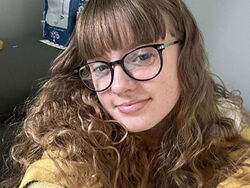
Blog Article

BCU’s Disability Support Team provides advice and support for people with neurodivergent conditions including dyslexia, dyspraxia, ADHD and autism, as well as disabilities and long-term health conditions.
Disability Support Team
The team can also help you access additional support and financial support through Disabled Students' Allowances where applicable, or other sources of support where relevant.
The team is here to support you as an applicant and a current student.
Current students can drop in and chat to the team every Monday and Thursday in Curzon (first floor) or Seacole (second floor) buildings.
Find out more about the team and how they can help here.
Dyslexia Screenings
As well as advice, the Disability Support Team also offers free dyslexia screening for students, followed up by support in getting a diagnosis, where relevant. They can also give advice on screening and diagnosis for other neurodivergent conditions, such as autism and ADHD.
Neurodiverse Society
BCUSU’s Neurodiverse Society aims to create a friendly environment for neurodiverse people (ADHD, Autism, Dyspraxia, and Dyslexia), where they can share interests, support each other socially and personally, as well as tackle new experiences and possibilities together.
Disabled Students’ Allowances
Disabled Students’ Allowances (DSAs) may pay for extra study-related costs you may incur at university as a result of a specific learning difficulty, if you are an undergraduate or postgraduate (including postgraduate research students).
Find out more about DSAs here or contact the Disability Support Team to find out more.
Employment and placement support
Neurodiverse students can access support to get into employment and internships from EmployAbility. The organisation aims to support students with mental health and neurodivergent conditions, as well as other disabilities to ensure they get the careers they deserve.
The assistance includes advice on rights to adjustments for recruitment and the workplace, information about disability rights, and support with job applications. The EmployAbility team will also advocate appropriate adjustments, to reduce stress and anxiety for you with employers.
The EmployAbility team is hosting webinars for students. Find out more and register here.
Support with Mental Health, Wellbeing, Finance, Childcare and more…
Our BCU support teams, which include the Mental Health and Wellbeing Team and the Student Support Team, offer a range of support to all students during their time at University.
Not sure what help you need? Find out more about the support on offer.
Hear from current students
Some of our students with neurodiverse conditions have been sharing their experiences at University for Neurodiversity Celebration Week. Second-year Cyber Security student and Treasurer of the Neurodiverse Society Scott Mitchell, who has Autism and dyslexia, says:

“Being autistic and dyslexic within university can be challenging. For me, the large social environments and the many conversations going on at once is what triggers my Autism.
“University is a great place with many different types of support, which I’ve found helpful.
“The Disability Team has been a useful resource for people who are neurodivergent though.
“Everyone has their own traits and triggers, which make you, well, you!”
Second-year Speech and Language Therapy student and Social Media Officer for the Neurodiverse Society Amy has also shared her experiences of being autistic.

“I’ve always known I was autistic from a fairly young age; due to feeling different to other people around me at secondary school. It wasn’t until my first year of uni, after facing a number of challenges, that I got screened for Autism Spectrum Disorder.
“My personal tutor, mentor, disability advisor and my friends have all been incredibly patient and supportive of me and my meltdowns – and I couldn’t be more grateful. I’m slowly learning more about myself each day, and what overstimulates me.
“I still face challenges with sensory overload on a daily basis, along with many other challenges, but I am slowly starting to accept and love myself for who I am and own my Autism.”